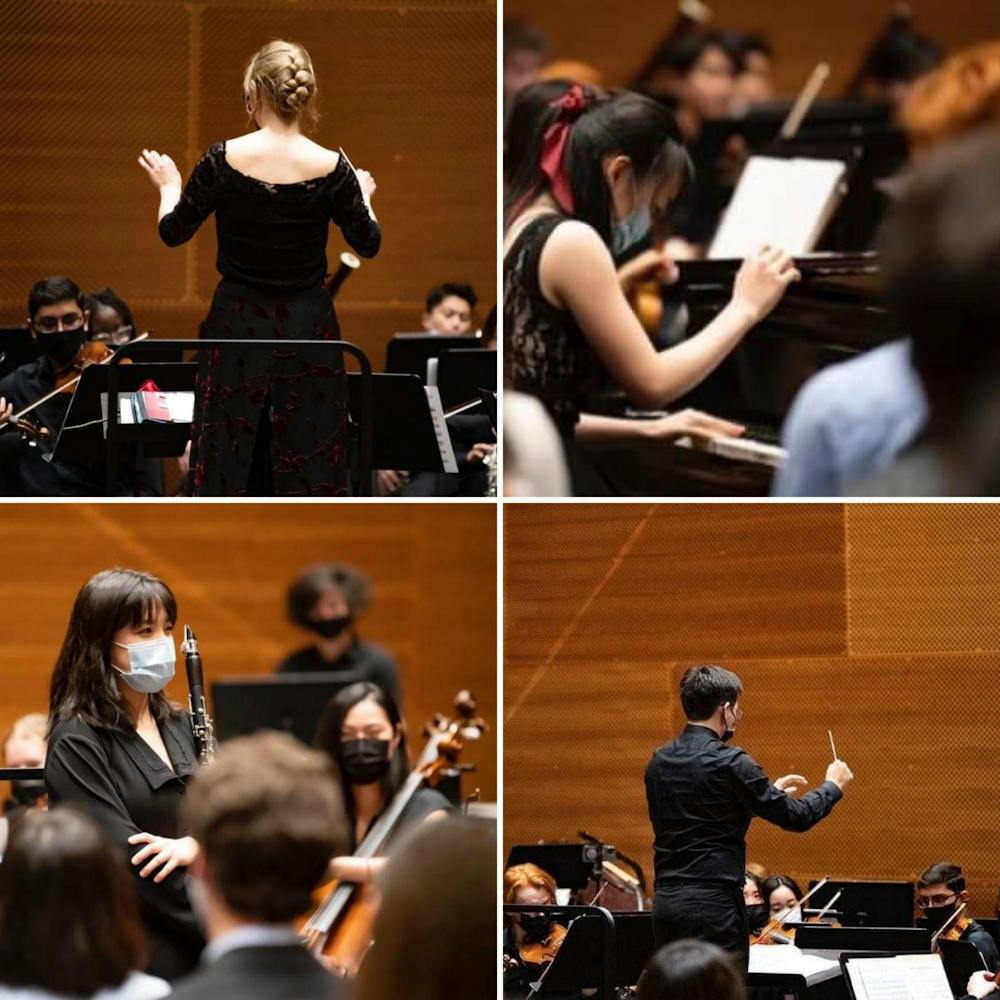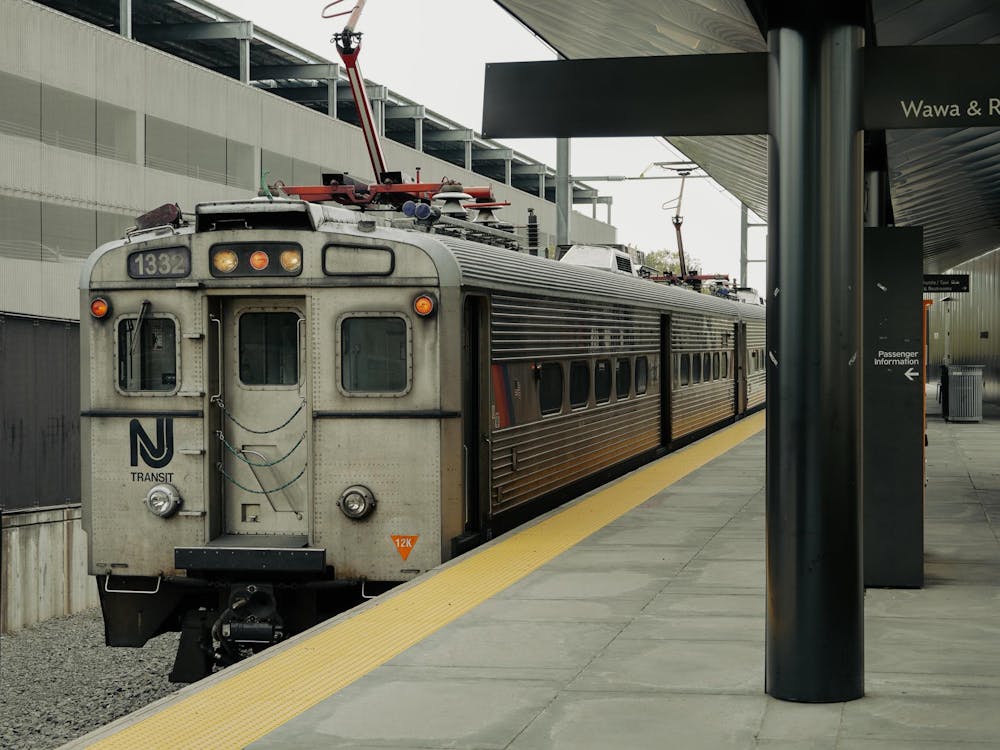Given that Princeton Camerata’s concert this past Sunday night sold out many days in advance, I can only imagine how many poor souls missed out on a truly incredible evening. I see it as my duty to share that evening with all those who were unable to attend and to immortalize it for anyone who could.
Allie Mangel ’22, one of the co-conductors, opened the concert with a brief introduction to the group at their first concert since fall 2019.
“In front of you is a group of some of the most talented and dedicated musicians at Princeton,” Mangel said.
Mangel acknowledged the musicians’ other significant commitments in groups such as Princeton University Orchestra, Sinfonia, and Glee Club. “It is incredible that these musicians come together, in addition to everything else, for the joy of making music.”
Mangel’s remarks could not have described the group more accurately. The concert was an evening free of judgement and affectation, focused on the beauty of the music and the relationships between performers, rather than the stuffy practices of more traditional or formal concerts. Musicians’ school bags and instrument cases were casually strewn on the side of the Lee Performance and Rehearsal Room. The lights did not dim at the start of the show, and the small audience sat at the same level as the performers.
When addressing the audience, Mangel was humble, soft spoken, and unassuming, but her demeanor changed as soon as she began to conduct. As the first notes of the “Overture to Ruslan and Lyudmila” by Glinka began, Mangel relaxed, connecting instantly with her musicians. Her conducting style is effortless and playful. While many conductors act as though they are somewhat separate from the musicians, Mangel’s conducting was more intimate. Rather than cueing certain sections, she seemed to be in conversation with individual players. Mangel did not conduct as an act of performance for the audience — instead, the audience is offered a glimpse into the musicians’ seemingly familial, nonverbal exchange.
The Glinka performance itself was triumphant: it was the perfect piece to re-debut the ensemble. The piece highlights distinct sections, allowing the ensemble to showcase the individual talents of their 2021 players. The audience excitedly shifted their attention from the jaunty strings and lively percussion to the soaring woodwinds and cheerful brass, celebrating each in turn.
After the Glinka, Camerata transitioned for Rachmaninoff’s “Piano Concerto No. 2,” with piano soloist Karina Wugang ’24. Wugang’s solo was emotive and as stunning to watch as it was to listen to. The motion of each phrase traveled up her arms and torso, dissonant passages tensing her shoulders and pulling her over the keys until moments of harmony, where she relaxed back into steady cadences. The ensemble built a steady and powerful foundation under Wugang, complimenting one stellar performance with another. Though co-conductor Andrian Rogers ’23 was obscured by the piano-lid from where I was sitting, it was clear that conductor and ensemble were just as engaged and engrossed in the piece as their soloist. From what I could tell, Camerata enjoyed playing the Rachmaninoff just as much as the audience enjoyed hearing them play it.
Following the Rachmaninoff, Emily Liushen ’22 premiered her new piece “Remove Tough Stains.” Liushen described how the piece was borne out of a period of questioning and uncertainty throughout the pandemic.
“I was asking, why do I do what I do?” Liushen said. “And there is no clear answer other than wanting to create.”
And create she did.
“Remove Tough Stains” is a juggernaut of a composition. Filled with sparkling percussion and sudden color changes, it is evocative of an epic film score, each melodic motif eliciting a distinct emotion until they are tied together, impressing upon the audience something far larger than its individual parts.

Next came four movements of Fauré’s “Pelléas et Mélisande.” This was the first time audience members seated house-left were able to see Rogers at work. He embodied the more traditional conductor figure. His motions were assured and intentional, each gesture powerful. Conductors like Rogers are not just directing performers, they themselves perform. Rogers attempted to shape the music in midair, sweeping the ensemble along with him. The contrast of Mangel and Rogers’ conducting styles was both refreshing and intriguing: a microcosm of conductor-musician dynamics. The Fauré itself was a marathon, and I spotted several frowns of concentration on players’ foreheads. The ensemble seemed to be particularly focused and perhaps tense throughout these movements. But that tension was not reflected in their sound, mournful and hopeful, played with a great deal of sensitivity.
Camerata closed with “Malambo” from “Estancia” by Ginastera, a lively encore to a wonderful night. While this was my first time attending a Camerata concert, it most certainly will not be my last. I highly suggest snagging a ticket for their next performance when you can, before it sells out again. After a two year hiatus, Camerata’s concert was an impressively humble and humbly impressive way to reacquaint the University community with their ensemble. Bravo!
Editor’s Note: The original photo caption incorrectly credited Allie Mangel '22, but has been changed to credit Li Lin Photography. The 'Prince' regrets this error.
Sydney Eck is a senior writer for The Prospect and assistant editor for Features who often covers artist profiles and food reviews (founder of Tiger Town Treats). She can be reached at seeck@princeton.edu or by Instagram DM @sydney.eck.








